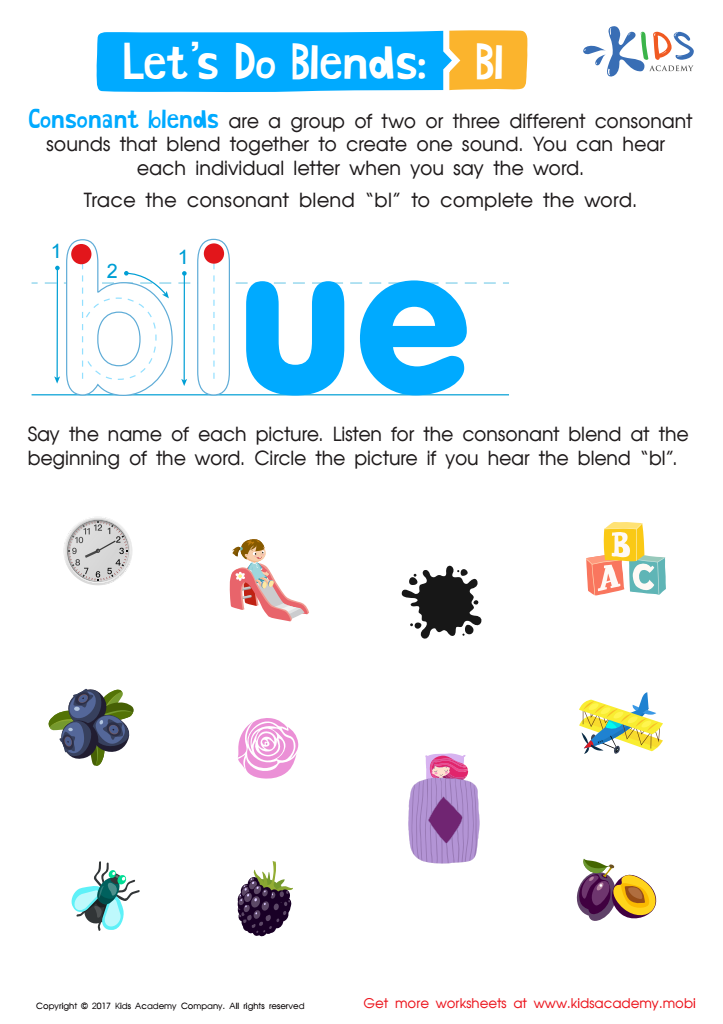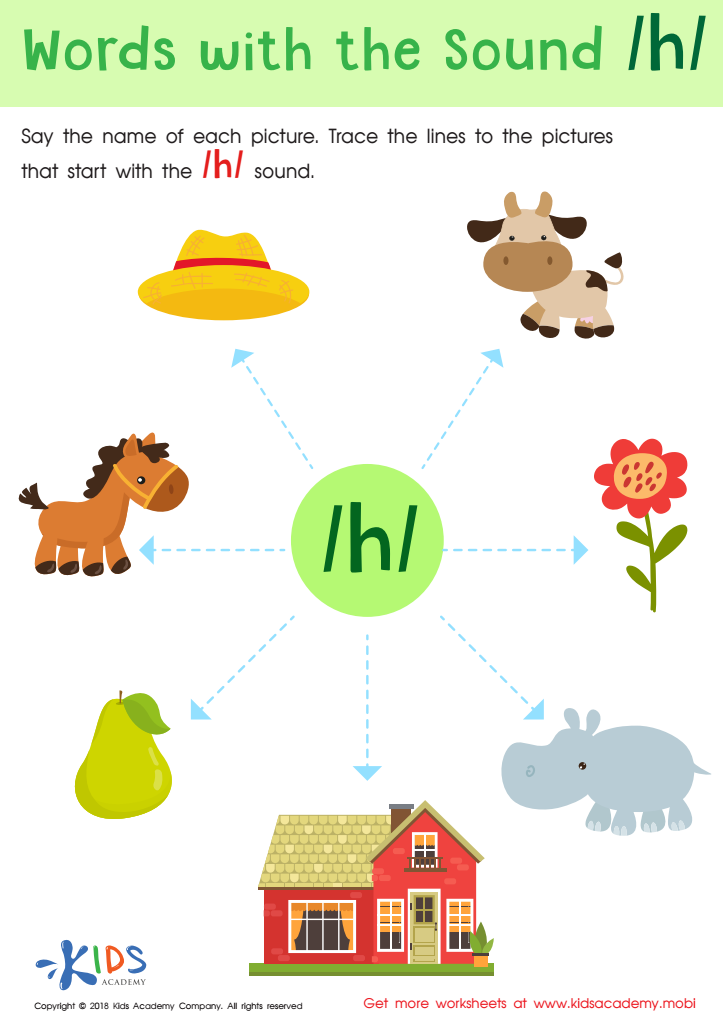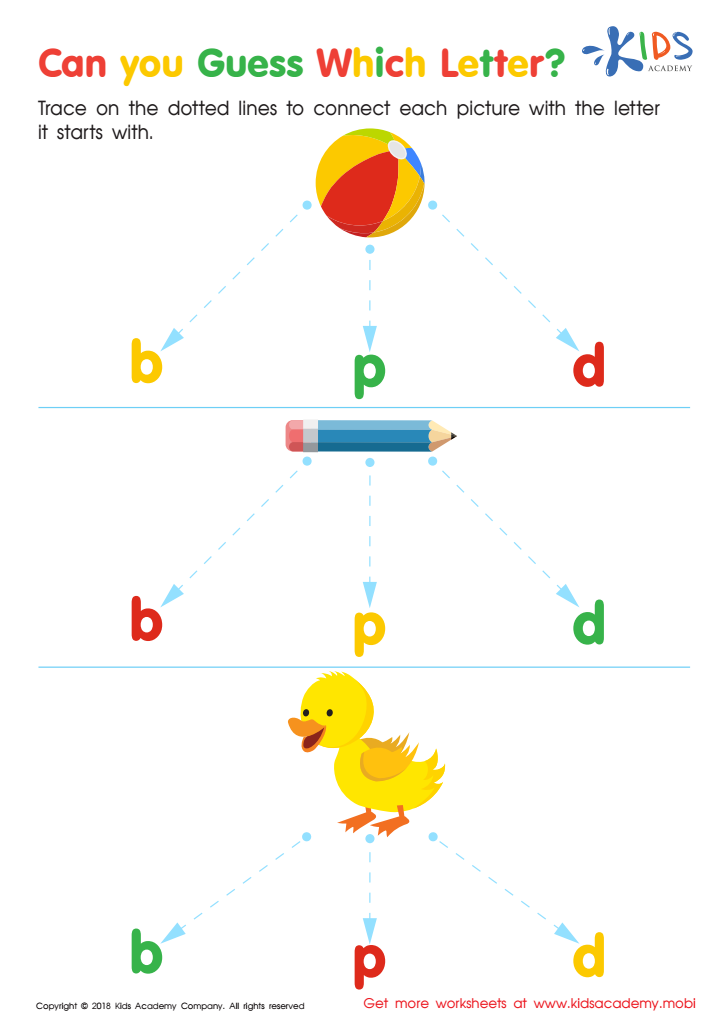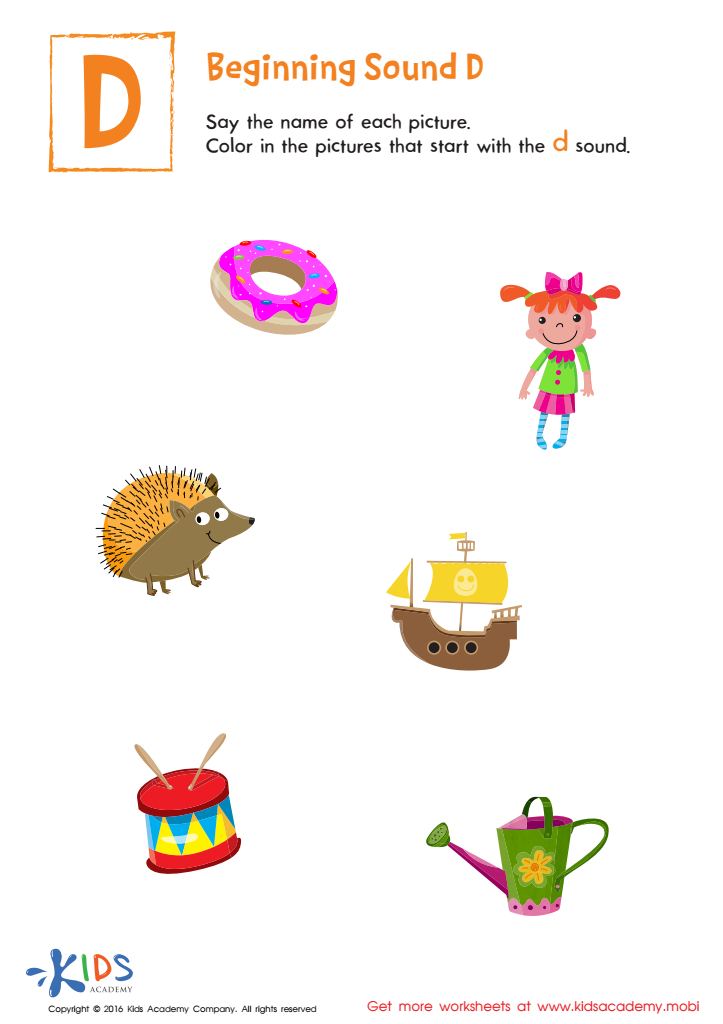Vocabulary expansion Normal Beginning Sounds Worksheets for Ages 3-6
5 filtered results
-
From - To
Enhance your child's language skills with our Vocabulary Expansion Normal Beginning Sounds Worksheets designed for ages 3-6. These engaging resources focus on helping young learners recognize and produce initial sounds in various words, fostering a strong foundation in reading and phonics. Using playful illustrations and interactive activities, children will explore new vocabulary while having fun. Each worksheet encourages critical thinking and creativity, making the learning process enjoyable and effective. Perfect for both classroom and home use, these worksheets are ideal for supporting early literacy skills and preparing your child for academic success. Start their journey to confident reading today!


Beginning Blends: "Bl" Words Worksheet


Words with sound h Reading Worksheet


Can you Guess Which Letter? Worksheet


Words with sound f Reading Worksheet


Beginning Sound D Worksheet
Vocabulary expansion, particularly focusing on normal beginning sounds, is crucial for children aged 3-6 as it lays the foundation for language development, literacy, and communication skills. At this age, children are incredibly receptive to new sounds and words, making it an ideal time for them to build their vocabulary. Understanding beginning sounds helps children recognize patterns in words, enhancing their ability to decode and spell as they progress to reading.
Teachers and parents play a pivotal role in this phase; engaging in activities such as rhyming games, sound identification, and interactive storytelling can significantly enrich a child's vocabulary and phonemic awareness. These activities not only cultivate an interest in language but also encourage critical thinking and creativity.
Moreover, vocabulary development at this age promotes social-emotional skills. As children articulate their thoughts and feelings more clearly, they can navigate social interactions with greater confidence and empathy.
Investing time in vocabulary expansion isn’t just about academic achievement; it's fundamentally about nurturing effective communicators and lifelong learners. As children's vocabulary grows, so do their opportunities for success in school and beyond, fostering a love for learning that lasts through their educational journeys.
 Assign to My Students
Assign to My Students














